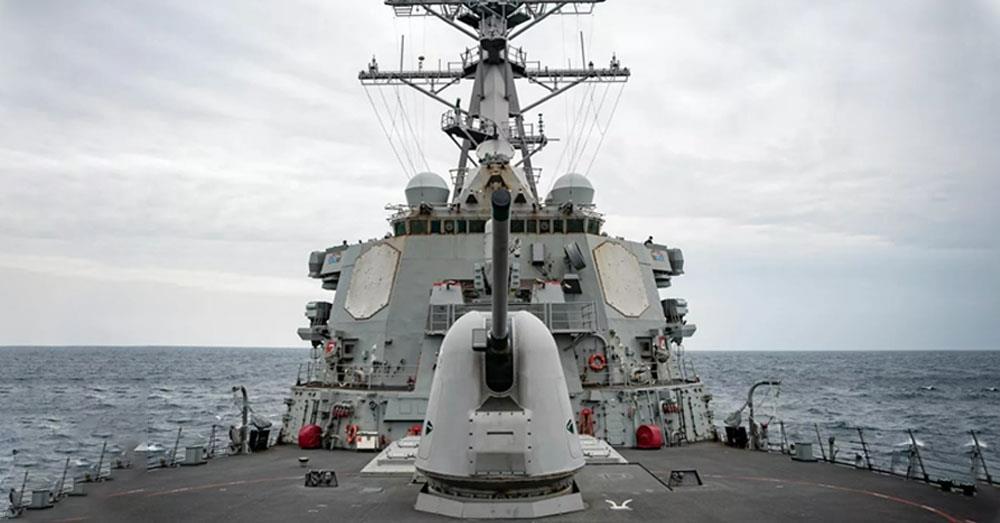BEIJING, Sep 18 (Sputnik) - The Chinese People's Liberation Army (PLA) Eastern Theatre Command will remain on high alert after the American missile destroyer USS Barry's recent transit through the Taiwan Strait, spokesperson Shi Yi said in a statement on Saturday.
"The US' frequent provocations of this kind sufficiently show that it is the destroyer of peace and stability in the Taiwan Straits [sic], and a security risk creator in the region", Shi argued.
The spokesperson added that after the American warship sailed through the Taiwan Strait, Eastern Theatre Command units conducted so-called "real combat drills" in the air and at sea in the southwestern waters off Taiwan. According to Shi, the war games involved "warships, early warning aircraft, and bombers".
The remarks come as the US Navy stated that the Arleigh Burke-class guided missile destroyer USS Barry conducted a "routine" transit through the Taiwan Strait on Friday, in a mission implemented "in accordance with international law".
"The ship's transit through the Taiwan Strait demonstrates the US commitment to a free and open Indo-Pacific. The United States military flies, sails, and operates anywhere international law allows", the US Navy noted.
Taiwan's Ministry of National Defence, for its part, confirmed the transit of the US destroyer through the Taiwan Strait, saying the vessel sailed from north to south.
Beijing has repeatedly criticised Washington for sailing its warships through the Taiwan Strait, characterising the transits as "dangerous" behaviour that "severely harms peace and stability" in the region.
Taiwan, officially known as the Republic of China (ROC), severed all ties with mainland China in 1949, in the wake of the Chinese Civil War, in which Mao Zedong's communist forces of the People's Republic of China (PRC) defeated the Kuomintang nationalists and forced them to flee to the island. With both the ROC and the PRC claiming the country's territory, the UN recognised the PRC as the sole legal China in 1971.
Beijing considers the island an integral part of the country, and adheres to a policy of peaceful reunification under a "One China – Two Systems" model.
The US does not have formal diplomatic relations with Taiwan but maintains a representative office in the island's capital Taipei, and is its biggest supplier of military equipment.
Earlier this year, White House Policy Coordinator for the Indo-Pacific Kurt Campbell stressed that Washington maintains a strong unofficial relationship with Taiwan but does not support its independence from China and would welcome the country playing a more prominent international role.





